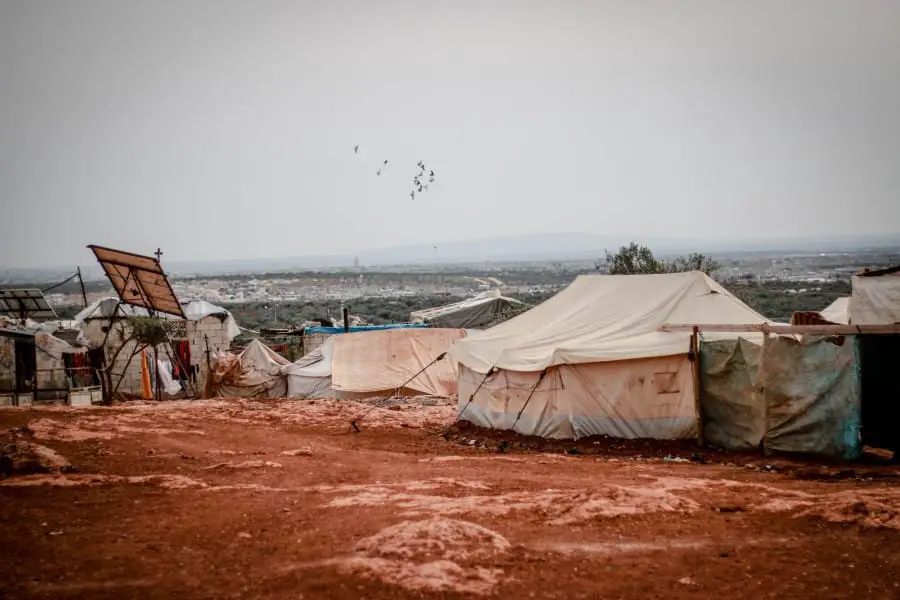This page contains affiliate links. This means if you a follow a link and make a purchase, at no additional cost to you, Humanitarian Careers will receive a commission. Thank you for supporting the site.
There are thousands of NGOs around the world – from major international NGOs, to small community-led organizations. NGOs work to provide aid to people affected by crises, conflicts or disasters. They are neutral, independent and impartial organizations giving assistance to anyone who needs it. But if NGOs are really non-aligned, then do they have any actual power?
NGOs do have a degree of power. As they work independent of governments, they are able to choose who they assist, what crises they respond to and how they do their work. They are also able to advocate and raise awareness of causes, which can give them significant influence.
…but that’s just an overview. In order to fully understand the power and influence NGOs have, we need to ask some more questions.
What Power Do NGOs Have?
The first question we need to ask if we’re going to understand the power that NGOs have within society is actually what authority and influence NGOs wield. There are four main ways that NGOs have power, these are:
- That they are independent organizations
- NGOs work where governments do not
- NGOs can affect public opinion
- They can be advocates for causes
Now we’ll look at each of these…
Independent Organizations
NGOs are independent organizations. They are not affiliated with governments, political parties or private enterprises. This gives them the power to act in the best interest of the people they serve. As a result, NGOs have a degree of authority that comes from not being aligned to any one political side.
Work Where Governments Do Not
The work that NGOs do is almost always delivered in areas where governments cannot, or do not, deliver services. This can be areas hit by disasters or communities living in extreme poverty. NGOs also provide assistance to marginalized groups that states deliberately ignore. The fact that NGOs are known to run programmes helping people outside the reach of the state makes them popular with communities and the wider public – adding to their influence.
Affect Public Opinion
Many NGOs are famous organizations. They are often highly respected by the general public, who also usually provide donations. This widespread presence and respected images give NGOs power because it means people listen to them when they campaign, raise funds or speak out on an issue.
Advocate For Causes
NGOs are often strong advocates for causes and fight for systemic change that addresses the root cause of the issues they work on. This advocacy can be incredibly powerful and cannot only drastically change public opinion, but can also change the decisions of governments.
What Limits Are There On The Power Of NGOs?
Right, so we’ve established that NGOs do have a degree of power and where this power comes from. But surely NGOs are not all powerful and can do whatever they want with the authority and influence they have? No, and in fact there are some major limits on the power that NGOs have. These include:
- Funding donors
- Authorities
- Public perception
- Accountability to communities
Let’s take a quick look at each of these in-turn…
Funding Donors
Almost all NGOs take funding grants from donor organisations. These grants are to complete a specific piece of work within a set time period. For example, an NGO will receive funding from a government agency to run an overseas aid project for two years aiming to help a certain number of people in a community. With this type of funding, NGOs cannot choose what they do with the money, but are under contract to complete the project funded by the grant.
As NGO’s rely so heavily on donor grants, they often have limited options to do the work they choose. Most NGOs are majority funded by grants from large donors such as the UN or national governments. This actually limits their independence and their power to do the work they choose.
Authorities
Another way that NGOs have their power limited is by local authorities. In most contexts that NGOs operate local authorities exert a degree of control over what NGOs do, where they can work, and the permissions and registrations they need to operate. These types of restrictions severely limit the power that NGOs have.
Public Perception
One way that NGOs power is curtailed is by public perception. NGOs rely heavily on public donations. They also often require volunteers as well as support from governments and other institutions, such as donors, that feed off public opinion. When an NGO loses its reputation with the wider public it can cause serious damage. The fact that NGOs must continue to receive public support limits their power.
Accountability To Communities
A final way that NGOs have their power limited is by the communities they serve. When NGOs provide aid to a community, they must have that community’s acceptance. The community must agree for the NGO to operate. A lack of acceptance can also be a major security risk for NGOs. It is vital that NGOs continue to have the acceptance of communities they work in and this limits their power.
NGO Online Courses
If you want to know more about NGOs, we highly recommend the online course Introduction to NGO Management. It goes over how NGOs operate and introduces students to the unique aspects of the NGO sector. Follow the link for more information.
Another online course we highly recommend for those wanting to know more about NGOs is How To Design and Fund International Development NGO Projects. Anyone working for an NGO needs a basic understanding of how NGO projects are set-up, and how to input to funding proposals. Click the link to get more information on the course.
If you are looking to work for an NGO, we highly recommend the online course International Humanitarian and Development Careers. We think it provides one of the best overviews of the NGO sector and gives a clear breakdown of the skills needed to get an NGO job. It also provides valuable information on how to successfully apply for positions within NGOs. Click the link to be taken to the course’s page.
Where Do NGOs Get Their Power From?
As we’ve said, NGOs do have some power within society. Although they are not as powerful as national governments, or even big businesses, they do wield some influence. But where do NGOs get their power from?
NGOs get their power because they are supported by national governments and from organizations that provide their funding. They also receive a degree of influence from the community they serve and the public support they get.
In most countries, NGOs get some support from the government. This could be through funding, tax breaks or connections between government ministers and NGOs regarding certain issues. This link between governments and NGOs gives NGOs a degree of legitimacy. By being independent, but in many ways endorsed by the state, NGOs gain a degree of power.
As well as receiving support from governments, NGOs also receive support from major organizations. Global bodies such as the United Nations and European Union also act directly or indirectly to provide assistance to NGOs and engage with their activities. This further lends NGOs credibility and adds to their influence.
NGOs work directly within the communities they serve. This, often deep, connection increases the acceptance of the NGO and their work. People see the benefit the NGO is providing the community. The acceptance NGOs have in the communities they work adds to their power and influence.
Lastly, many NGOs are hugely famous. Even smaller NGOs often have a dedicated following in their country. The fact that NGOs are known publicly, and often highly respected, is another way they gain a degree of authority.
How Do NGOs Use Their Influence?
So, we’ve established that NGOs do have power and influence. Now, let’s look briefly at what they actually do with that authority…
NGOs use their influence to provide aid to people affected by disasters and conflicts and to help lift people out of poverty. They also use their influence to advocate for long-term systemic change and draw public attention to global crises.
The reason NGOs exist is to provide assistance to people in need. This is the biggest way they use their power. They use the influence they have to raise funds, access disaster hit communities, set-up programmes in poverty-stricken areas and fight for the rights of marginalized communities.
NGOs also use their influence to campaign on causes related to their work. This could be lobbying for changes in government legislation or highlighting to the public issues that otherwise may get ignored. Advocacy and campaigning are a major way that NGOs use their power and influence.
Should NGOs Be Powerful?
A final question we need to ask to understand the power and influence NGOs have is… should NGOs even be powerful?
Most people agree that NGOs should have some power. Their vital work providing impartial and natural assistance to people gives them a degree of influence. NGOs are seen as being non-political and not part of the government, this adds to their power.
NGO’s use their power and influence to help people in need and advocate for causes that otherwise would go unaddressed. For this reason, the majority of the public are happy with the position of NGOs within society.
If you want to know more about NGOs, explore our page on the top NGO online courses here.





